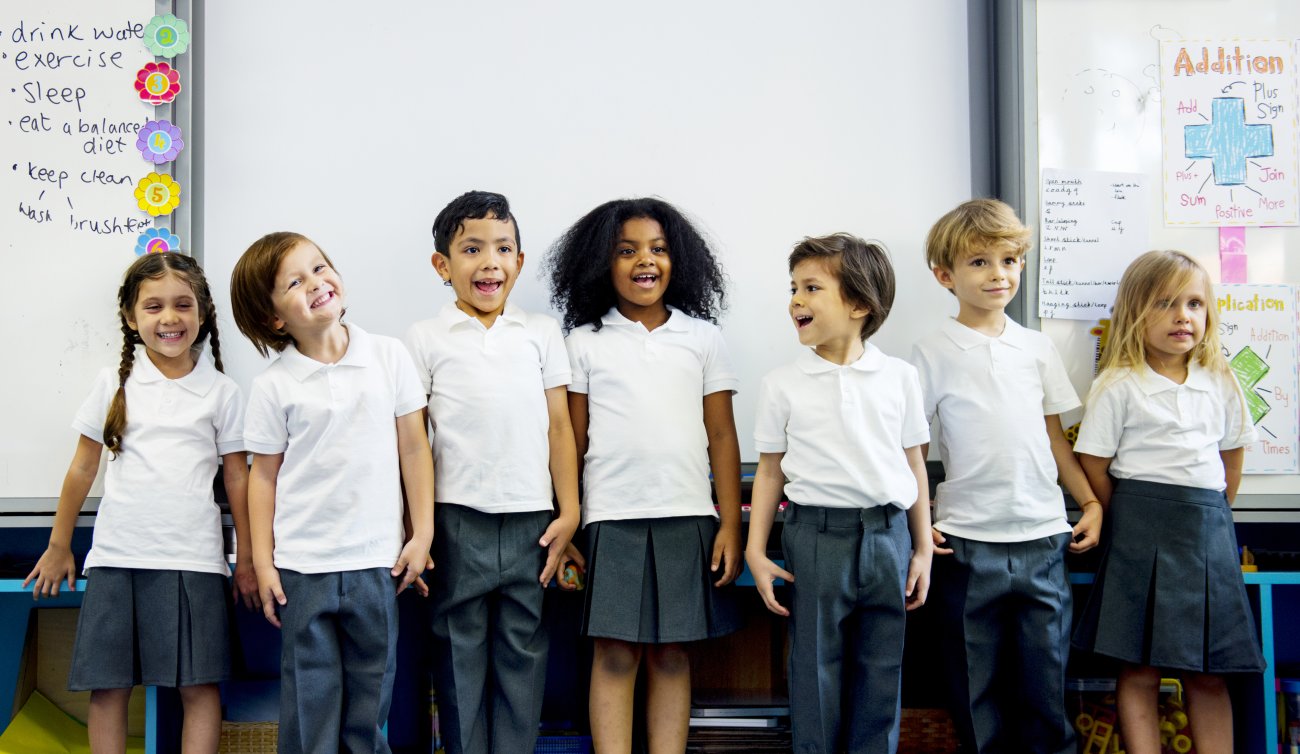Reports: Rights of children in NI undermined by religion
Posted: Fri, 27th Jan 2023
New reports to the United Nations have detailed the widespread detrimental influence of religion on the rights of children in Northern Ireland.
The Children's Law Centre (CLC), a Northern Ireland based child rights advocacy group, submitted three reports to the UN Committee on the Rights of the Child (UNCRC) last week. They demonstrate "how rights and protections for children have regressed" in schools and society more broadly.
The reports explain how children are segregated by their parents' religion, subjected to compulsory worship and taught religious education (RE) "based on the holy scriptures".
The National Secular Society has also repeatedly raised these issues with the UNCRC.
Integrated education
The UNCRC recommended in 2016 that Northern Ireland "actively promote a fully integrated education system" to facilitate "social integration".
Despite this, only 7% of Northern Irish students attend integrated schools, with the majority of children of Protestant and Catholic parents educated separately.
2021 polling showed 71% of Northern Irish people believe integrated education should be the "primary model for the education system". The CLC reports also note that the segregation of children is "often exacerbated by segregation among teachers and governing bodies".
Many integrated schools are over-subscribed and current provision is "unable to meet demand", especially in secondary schools.
Stormont has commissioned an Independent Review of Education tasked with assessing the "prospects of moving towards a single education system". It is due to complete its review this year.
Collective worship
In 2016 the UNCRC's 2016 also recommended ending legally mandated collective worship in schools. Despite this, it remains mandatory in Northern Irish schools. Unlike in England in Wales, even children over the age of 16 do not have a right to withdraw themselves from collective worship.
For those students who are withdrawn by their parents the process "is often difficult" and they are "rarely given a meaningful alternative of equal educational value". Those who are withdrawn are indirectly required to "reveal information about their beliefs, compromising their right to privacy".
Last year, the High Court in Northern Ireland ruled the current system of collective worship and religious education is incompatible with the European Convention of Human Rights. The Court observed that children withdrawn from collective worship face a "risk of stigmatisation".
The CLC reports note that the status quo "favours one faith perspective (Christianity)" and "pre-supposes that children will participate in religious activities" unless they are withdrawn by their parents. It calls for collective worship to be replaced with "non-discriminating assemblies".
Inclusive relationship and sex education (RSE)
Beyond a legally required minimum syllabus, Department of Education guidance allows NI schools to teach RSE "based on the ethos of the school". As many are faith schools, this means "important RSE content may be excluded". The CLC reports describe provision of RSE as "inadequate", in part because it fails to adequately cover LGBTI+ relationships. LGBT students report homophobic bullying and feel "unsupported" by the response of staff.
Despite the Northern Ireland Secretary of State's statutory duty to introduce compulsory RSE, it remains the case that parents are allowed to withdraw their children from RSE.
Religious education and creationism
The reports note there is "no requirement to teach children about evolution" and, unlike in England, state-funded schools are not prevented from teaching scientifically discredited ideas including creationism and intelligent design.
State-funded schools are required to teach RE "based on the holy scriptures". The syllabus is designed by the "four main Christian churches", without non-religious input. Religions besides Christianity are described as "other religions", illustrating Christianity's privileged position.
Other areas
The reports, in line with NSS recommendations to the NI Department of Finance, advocate bringing forward legislation to "increase the minimum age for marriage or civil partnership to 18 years". The legal minimum is currently 16 years of age.
The Northern Irish Health Minister's refusal to commission abortion services has forced the UK government to intervene and women beyond 10 weeks of pregnancy are still being forced to travel to "other jurisdictions" to access abortion.
Parents are "not required to register with the Education Authority" if they decide to home educate their child. There are no plans to introduce a compulsory register, leaving children vulnerable to their educational and welfare needs being neglected.
NSS: Religious doctrine cannot be allowed to 'abridge the rights of children'
NSS campaigns officer Alejandro Sanchez said: "These reports lay bare the undue influence of religion on the lives of children in Northern Ireland.
"It is wholly unacceptable that religious doctrine continues to abridge the rights of children in the 21st century.
"Legislators should act to ensure children's rights are properly respected and no longer impeded by religious demands."
Image: Rawpixel.com/Shutterstock.com.
While you're here
Our news and opinion content is an important part of our campaigns work. Many articles involve a lot of research by our campaigns team. If you value this output, please consider supporting us today.


